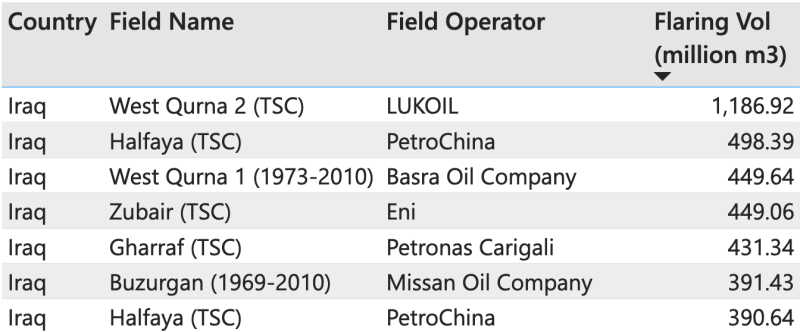TotalEnergies and the Iraqi government have struck a deal to salvage an estimated $27 billion in energy projects designed to boost the country’s electricity production, but whose launch has been delayed for nearly 2 years by a conflict over the size of Baghdad’s stake in the deal.
The agreement announced on 5 April followed months of negotiations, including four personal meetings between Iraq’s Prime Minister Mohammed Shia al-Sudani and TotalEnergies’ Chairman and CEO Patrick Pouyanné, to break the deadlock over a development and production contract signed by the two parties in September 2021, TotalEnergies said.
The Iraqi government and TotalEnergies have now agreed that Baghdad will hold a 30% stake through the Basrah Oil Company in what is called the Gas Growth Integrated Project (GGIP). Also, after agreeing with the Iraqi government, TotalEnergies has invited QatarEnergy to take a 25% stake in the consortium. TotalEnergies holds a 45% operator interest.
Besides agreeing ownership, TotalEnergies said it has confirmed with Iraq all other terms of the original 2021 agreement which was signed a month before Iraq’s government changed, teeing up the conflict. Iraq had originally sought a 40% stake while TotalEnergies’ initial position was to grant state interests 25%.
The deal relies on a profit-sharing structure between the partners, with revenues from the expansion of the Ratawi heavy oil field that TotalEnergies operates near Basra raising output to help finance other projects, the Financial Times reported.
Electricity Shouldn’t Be a Problem for OPEC’s No. 2 Producer
Infrastructure projects to be pursued by GGIP focus on boosting electricity capacity in Iraq where blackouts are commonplace. Included among the planned investments:
- Development of facilities to recover flare gas from three oil fields, enough to generate 1.5 GW of power in Phase 1, doubling to 3 GW in Phase 2
- Construction of a 1-GW solar facility to further expand the capacity of the Basra regional grid
- Development of a new gas-gathering network and treatment units to supply local power stations as TotalEnergies optimizes oil and gas production at Rataw
- Construction of a large-scale seawater treatment unit to provide water for injection to manage reservoir pressure in Basra to minimize use of fresh water from rivers and aquifers
Saad bin Sherida Al Kaabi, Qatar’s Minister of State for Energy Affairs and president and CEO of QatarEnergy, whose experience in large-scale energy projects includes seawater treatment projects, noted that Qatar is “pleased to be part of this significant development” which builds on its partnership with TotalEnergies globally.
Though the projects represent a total investment of approximately $10 billion (100% share), as confirmed by TotalEnergies, the Financial Times reported that Iraq authorities put the figure at $27 billion once operating spending is included.
Iraq has the second-highest level of gas flaring in the world, as it lacks facilities to process gas associated with oil production into fuel for local consumption or export. In 2022, the World Bank estimated that Iraq flared nearly 18 billion m3/year of gas, representing more than $2.0 billion in lost sales value as calculated by the World Bank at $2.50/MMbtu.

Despite the opportunities, Iraq has been losing major investors in its fossil fuel industry in recent years even though it ranks fifth among global oil producers and is OPEC’s second-largest producer behind Saudi Arabia. This has been particularly true of IOCs: ExxonMobil and Shell left projects, and BP and others have considered leaving.
Poor returns on contracts and instability, including last year’s unrest that almost derailed the deal with TotalEnergies, haven’t encouraged foreign investors.
In its recent press statement, TotalEnergies praised its Iraqi counterparts for having reached a deal on GGIP, with the French major saying it “welcomes the continuity of the voice of the State of Iraq on this development and production contract, which is a strong and positive signal for foreign investment in the country.”
The Iraqi cabinet commented similarly with a statement that the Iraqi government had confirmed its acceptance of TotalEnergies’ offer of a 30% stake in the GGIP series of projects “due to the importance of resolving the issue . . . and proceeding with concluding related agreements."


